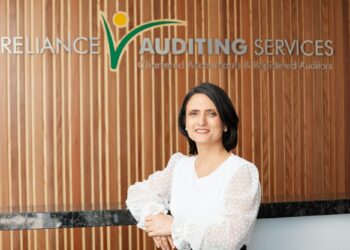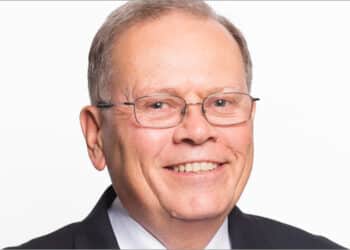Although it was delayed due to COVID-19, APRA has stated it is looking to recommence a review of the sole purpose test to identify clear principles that trustees should be able to apply and examples of breaches that would require action. It is also debating whether the law could be clarified to better reflect the intent.
Colonial First State head of technical services Craig Day said that a lot of rules around advice fees in the sole purpose test are quite broadly written to the extent that they almost become ambiguous.
He noted the context of SMSF advice fees needs to be better clarified towards clearly defining the subject matter.
“Although there are different circumstances, what I think what you need to keep in mind is to focus on the subject matter of the advice and if that is the member’s interest in superannuation, you generally can charge for it,” he said at the SMSF Association National Conference.
However, Mr Day said everything starts getting a little grey when the focus of advice fees is intersected between subject matters in the superannuation interest.
“For example, in regard to Centrelink, I’ve got a client that wants to maximise their age pension,” he said. “Since it is a completely different matter, if you’re providing advice on Centrelink entitlements, you can’t charge the super fund for that; yes, it’s retirement income, but it’s not in relation to their interest in a superannuation fund, so therefore, it will be a breach of sole purpose.
“But things get complex when you consider if the subject matter of the Centrelink advice is actually the superannuation interest, and that’s where it starts to get grey and interesting.
“For example, I’ve got a client that’s extremely concerned about longevity risk, they’re currently drawing more than the account-based pension minimum drawdown rate, but they’re concerned about longevity risk and running out of money before they fall off the twig.
“In that situation, they’re asking to say, well, how can I afford to actually reduce my drawdown of account-based pension back to the minimum?”
Mr Craig said one of the ways to address this is by looking at social security entitlements and perhaps start recommending a gifting strategy or an annuity strategy to get the benefit of that asset reduction.
“As soon as I’m doing that, the question you begin to ask is what is the subject matter of the advice. Is it to provide advice around maximising social security entitlements or is it about my ability to reduce my drawdown on my account-based pension and make it last longer?” he said.
“So, you can begin to see the argument there to say this is actually the subject matter of the advice which is based all around superannuation.”
However, as soon as advisers want to go off in this direction and charge for that kind of advice, Mr Day said to remember those key three words in the sole purpose test, that the advice must be a “reasonable, direct and transparent” connection to the provision of retirement benefit.
“As soon as you start to charge for that kind of advice, you’re going to need to be able to reasonably, directly and transparently justify how that relates to the member’s interest in their superannuation fund,” Mr Day explained.
“So, that can also relate to cash flow advice where if the cash flow advice is paying off your mortgage, which then allows you to pay off your non-deductible, which then allows you to increase the level of your salary sacrifice contributions, or the other consideration of non-super assets and liabilities related to insurance in super advice.
“You just need to make sure you get that reasonable direct and transparent connection to the provision of that kind of benefits, but you must be able to prove it.”
Another complexity is for those providing advice to a client that relates to several different factors.
Mr Day said that there will be a need to break up the advice fees into bits that relate to the superannuation interest and bits that don’t with a “slice and dice” approach.
Mr Day provided an example where some advisers will provide a comprehensive SOA and that will be advice to the trustee in relation to fund matters, so an investment strategy or the particular type of investment would mean that the adviser is now advising you as a trustee of your super fund.
“In that same SOA, I’m here providing advice to you in relation to both your super and non-super issues,” he said.
“Once again, the adviser will have to break that up between advice that is appropriate to charge the fund and advice that is not appropriate to charge the fund.
“Make sure that you don’t charge the non-super advice to the superannuation fund or the client will have to pay that directly.”



This whole matter is nonsense. APRA and other regulators are tinkering around the edges with rubbish like this that has very little to do with the bigger picture, i.e. ensuring Australians have access to good quality, affordable advice. What if a client only holds a super account with your firm, but need advice on other matters? We now need to keep a “time in attendance” record of every conversation or activity that doesn’t relate exactly to super, so we can hand the client a separate invoice?? Haha what a waste of time. How is this in clients’ best interests? The very act of increasing the accounting work for fees is passed on to the client as – you guessed it – higher fees. This is a classic example of the rules being written by lawyers with no input from the actual practitioners. Just because a law firm thinks it’s ok to charge their clients in 6-minute blocks, itemised on a statement, doesn’t mean this works with (or should apply to) financial advice. So if I charge a “fee for service”, I now need to know the %o f that service relates to super – and what % relates to other matters. What if we have a phone conversation covering a number of matters? Do we keep a record of that. Hahaha the whole thing is keystone cops.
The problem relates to the actual breach of the sole purpose test, one the THE most fundamental rules for SMSF’s. We get around this problem by making periodical estimates of the time required for these different activities and then splitting our fees.
It is a prospective estimate, not a retrospective accounting activity so therefore is not a huge increase in time and effort.
I would be confident that if it was reasonable in the first instance any audit/enquiry could be sufficiently dealt with.
I agree with you this does add cost but we do it in the most efficient way possible. Further the client, with a split fee and subject to personal tax rates, may get a better after tax fee with a personal deduction if it relates to the derivation of income.
For retirement phase clients I would simply advise the accountant that x% was a super fund expense and (100-x%) should be recorded as a pension/LS withdrawal, this is even easier than accumulation phase but remains realistic and defensible.
I hope the regulators don’t ever look at this. Millions in advice fees inappropriately charged will need to be reimbursed to super funds.